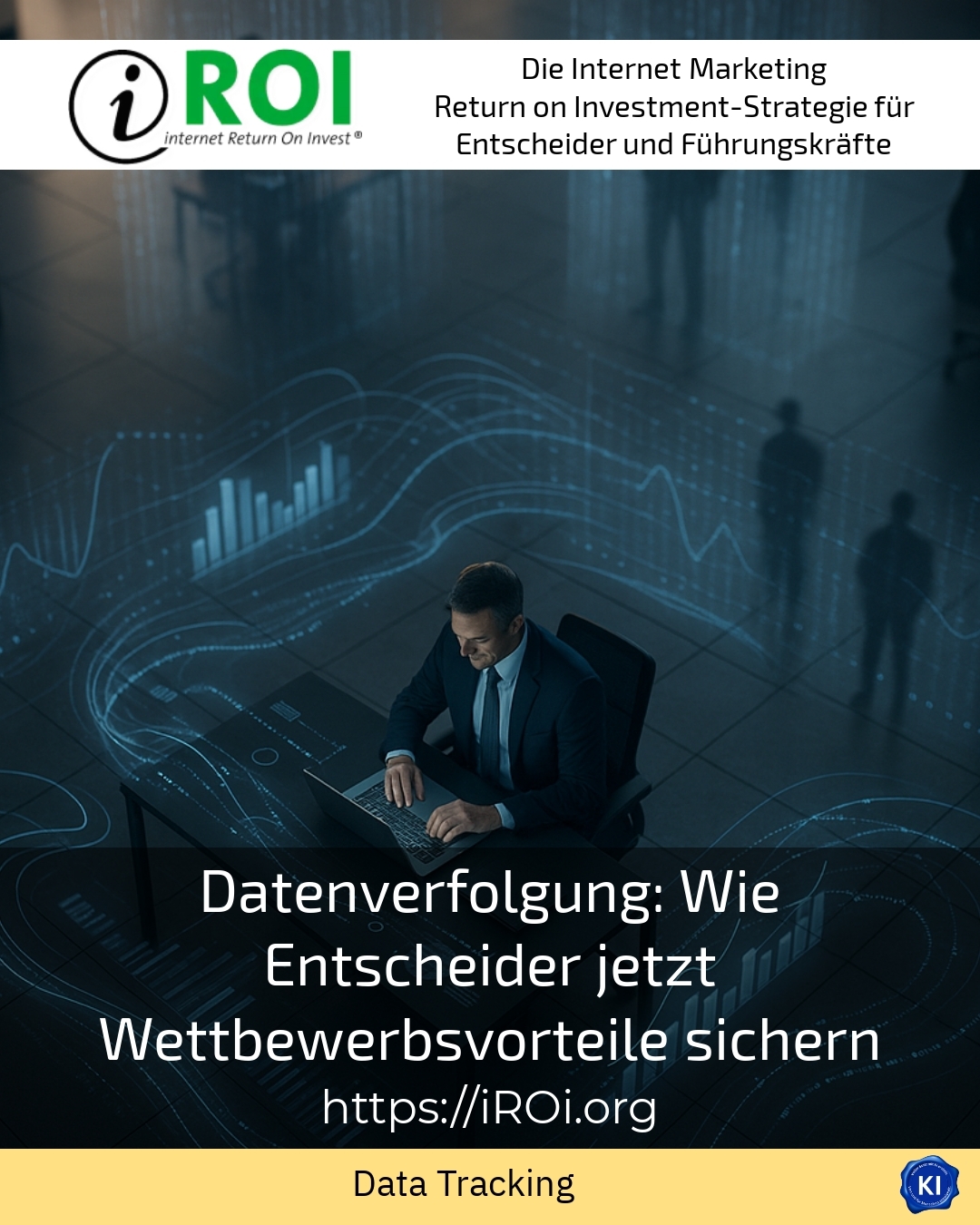How decision-makers secure competitive advantages through data tracking
Data tracking is becoming increasingly important for companies that want to strengthen their competitive position. Decision-makers are turning to coaching services with questions about the optimal use of data in order to master the complexity of data analysis and receive targeted impetus for their project. Data tracking is the systematic collection and analysis of relevant information that is generated in various business areas. Those who use data tracking sensibly can work more efficiently and react more quickly to market developments.
Data tracking as the key to flexibility and productivity
Experience shows that data tracking brings competitive advantages above all when the collected data is not only collected but also interpreted in a targeted manner. Here, transruptions coaching often accompanies decision-makers to support them in interpreting data and precisely defining project goals. In practice, this often results in greater flexibility. Industrial companies use data tracking to improve manufacturing processes and reduce downtimes in production. For example, production facilities have been able to plan their maintenance cycles precisely and predict breakdowns.
BEST PRACTICE at ABC (name changed due to NDA contract) The company introduced a new maintenance planning system using data tracking. This reduced machine downtime by 20 per cent and significantly improved the ability to plan production. The decision-makers received transparent process data that enabled agile control.
In the financial sector, data tracking helps to recognise risks at an early stage and adjust portfolios flexibly. This makes it easier to cope with short-term market changes. In the healthcare sector, data tracking enables the precise tracking of patient progress and helps to optimise treatment plans on an individual basis. Decision-makers report that support in interpreting data helps them to make more informed strategic decisions.
Data tracking in combination with a holistic data strategy
Competitive advantages through data tracking arise particularly when it is part of a comprehensive data strategy. Such a strategy prioritises innovations derived from data analyses and promotes agile business processes. Companies use data tracking to reduce costs and sustainably increase efficiency. Specialist support often plays a central role in this process in order to justify measures on a solid data basis.
BEST PRACTICE at DEF (name changed due to NDA contract) Data tracking was used here to control product developments based on data. Regular analyses enabled innovation cycles to be shortened and trends to be recognised at an early stage. Expert support helped to translate the data into specific product improvements and increase competitiveness.
In addition, data tracking systems support compliance with data protection regulations, which is increasingly an important criterion for competitive advantage. Data protection-compliant processing strengthens customer trust and ensures smooth business processes.
Technological developments and future prospects
The use of modern technologies such as artificial intelligence (AI) and machine learning is closely linked to data tracking. Decision-makers are increasingly relying on these methods to recognise patterns in huge amounts of data and derive predictions for market trends. This allows companies to react flexibly to changes and adapt their strategies in a timely manner.
BEST PRACTICE at GHI (name changed due to NDA contract) This company implemented AI-supported data tracking tools that provide predictions on customer behaviour. As a result, marketing campaigns were targeted more precisely and customer loyalty improved. The data-based decision-making led to sustainable competitive advantages in the market.
It is important not only to focus on the quantity of data collected, but also to ensure its quality and protection. This is the only way to create sustainable competitive advantages that are difficult to copy. Companies that integrate data tracking into their core processes and are supported by expert guidance will benefit from greater efficiency and agile market reactions in the long term.
My analysis
Data tracking is not a self-runner, but requires a conscious strategy and targeted support. Decision-makers who are supported by experienced coaches in the interpretation of data can steer their projects unerringly and secure competitive advantages. Practical experience shows that data tracking increases efficiency across all industries, clarifies risk assessments and drives innovation. The combination of technological expertise and practical implementation is the key to sustainable success.
Further links from the text above:
[1] Data tracking creates competitive advantages - SAULDIE
[2] Competitive advantages through data analysis - GmbHChef
[4] Holistic data strategy and competitive advantages - SAULDIE
[5] Success factors for sustainable competitive advantages through AI - Business Information Excellence
For more information and if you have any questions, please contact Contact us or read more blog posts on the topic TRANSRUPTION here.















